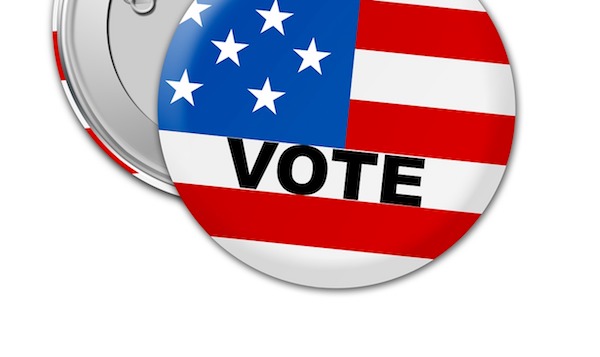
“Every bad idea” that created problems in the 2020 election – mail-in ballots, ballots without postmarks, late ballots, unvetted voter lists, ballots that missed deadlines – would be allowed in every state under a new plan by Democrats.
“If you thought the 2020 elections were chaotic, just wait,” writes J. Christian Adams, president of Public Interest Legal Foundation and a former Department of Justice lawyer,
Adams, who also has served on the Presidential Advisory Commission for Election Integrity, says the bill, H.R. 1, also would allow Congress to deprive any state where someone believes the “the right to vote is denied” of its representation in Congress.
“Without qualification or definition, Congress could rely on [one] sentence unilaterally to cut the number of House members from any state it claims is denying the right to vote,” he said.
In a column for the Gatestone Institute, Adams pointed out the Democrats’ plan criminalizes “anyone who uses state challenge laws to question the eligibility of registrants wrongly.”
And it “prohibits states from conducting list maintenance on the voter rolls. That means deadwood and obsolete registrations will stack up.”
It also criminalizes publishing “false statements” without defining “false.”
And if a state doesn’t meet Congress’ demands for voting standards, the state standards don’t apply.
“That is not all. Nationwide, states must accept mail ballots on Election Day plus 10 days later. States are allowed to add extra time to the window. No more election day. It will be election season, with a month of early voting and weeks of ballots arriving and being counted,” he said.
The bill, nearly 800 pages, has “every bad idea about how to run elections and mandates that the states must adopt – the very things that made the election of 2020 such a mess,” Adams said.
“It includes all of the greatest hits of 2020: Mandatory mail ballots, ballots without postmarks, late ballots and voting in precincts where you don’t live. It includes so many bad ideas that no publication has satisfactory space to cover all of them. The Senate companion bill, S.1, might be even worse,” Adams wrote.
Foundationally, it changes the relationship between states and the federal government.
“The Constitution presumes that states regulate their own elections, but the Constitution has a big ‘but’ in what is called the Elections Clause. The Constitution says, ‘but the Congress may at any time by Law make or alter such Regulations.’ For over 200 years, Congress rarely used this power. After all, the power was put in the Constitution only to prevent the states from suffocating the federal government out of existence by never holding federal elections,” he said.
Adams said the plan would prevent states from verifying signatures on ballots.
And it hinders any legal challenge.
“H.R. 1 rigs the system for any lawsuits challenging the constitutionality of the law. All lawsuits can only be filed in one court – federal court in the District of Columbia. And all opposition must be consolidated into one brief with only one attorney being able to argue the merits. It also grants automatic intervention to any legislators who want to join in the fight against the lone opposition,” he explained.
“And of course, unlimited ballot harvesting – having a third party ‘help’ to fill in and gather up ballots, then drop them off at a polling station or other designated station – is guaranteed,” wrote Adams.
“Misinformation, protests, unrest, and even violence were all symptoms of the trauma of 2020. Activist groups and collusive officials in 2020 turned courts into weapons to transform state laws into election procedures that were favorable to one particular party. H.R.1 would finish the job, and federalize the policies and election procedures that made 2020 such a mess.”
Via Wnd
